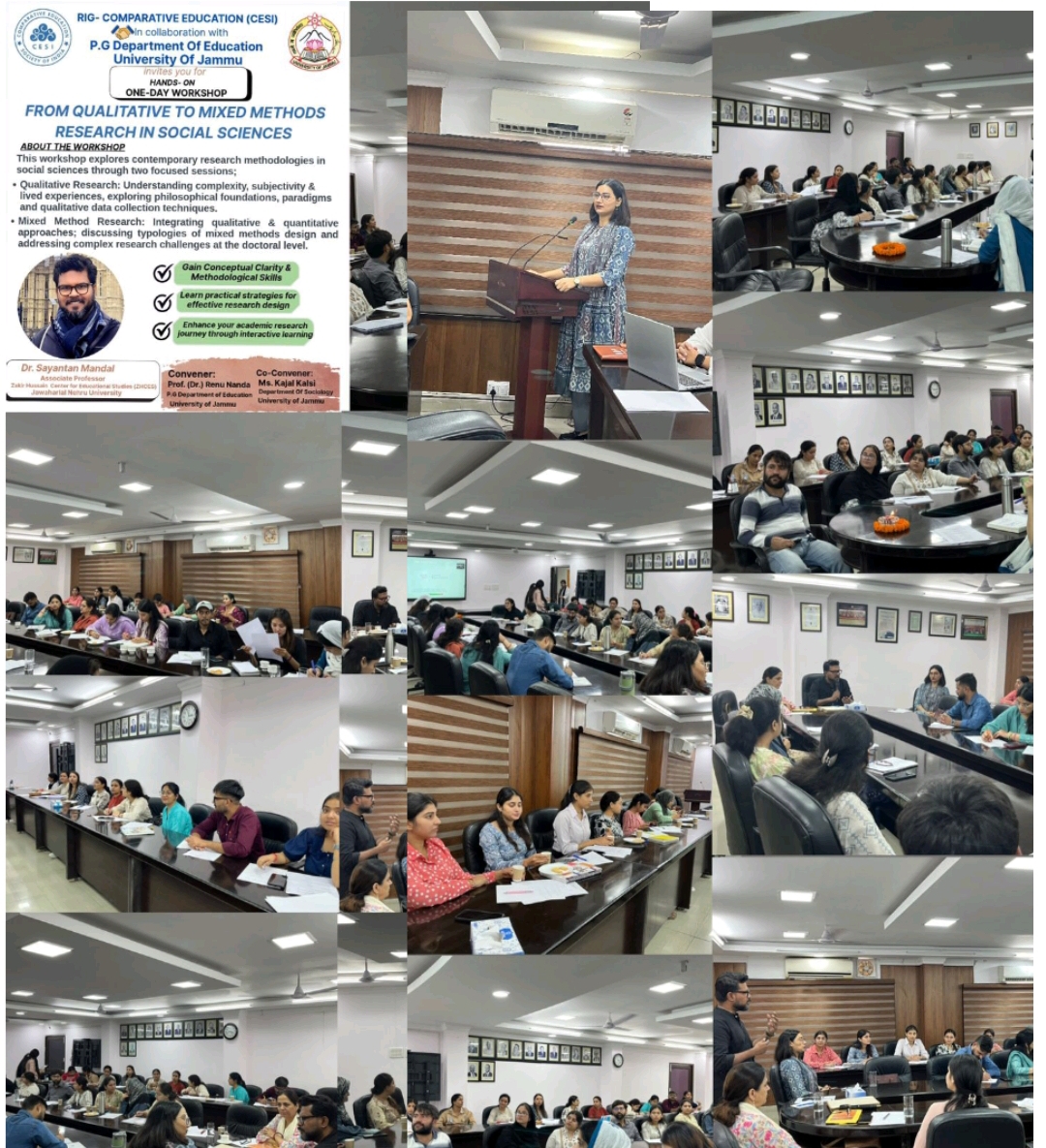About University

Cradled in the lap of mountains at the foothills of auspicious Trikuta, besides the river Tawi at an altitude of 1030 ft. is Jammu. This 'city of temples' has many places...
One-Day Workshop on “From Qualitative to Mixed Method Research in Social Sciences” held at University of Jammu

Jammu, October 13: RIG-Comparative Education, Comparative Education Society of India (CESI), in collaboration with the P.G. Department of Education, University of Jammu, organized a one-day hands-on workshop on the theme “From Qualitative to Mixed Method Research in Social Sciences” at the Committee Room, VC Secretariat, University of Jammu.
The workshop witnessed active participation from research scholars, educators, and postgraduate students from across disciplines and institutions, including Government College for Women Parade, Government PG College of Education Canal Road, MAM College, and several departments of the University of Jammu such as Education, Economics, Commerce, Sociology, Home Science, Psychology, Library Science, Strategic & Regional Studies, and Political Science.
In her welcome address, Ms. Kajal Kalsi, Co-convener of the workshop from the Department of Sociology, emphasized the growing importance of sound methodological training in social science research and how such platforms help nurture the next generation of researchers. The session was introduced and moderated by Ms. Aditi Sharma, who set the tone for the day’s academic deliberations.
The technical sessions were led by Dr. Sayantan Mandal, Associate Professor, Zakir Husain Centre for Educational Studies (ZHCES), Jawaharlal Nehru University, New Delhi — a leading scholar in educational research methodologies.
In the first session on Qualitative Research Methods, Dr. Mandal discussed the philosophical and epistemological foundations of qualitative research and elaborated on various data collection techniques such as interviews, field observations, and narrative analysis. He also underlined the significance of reflexivity and contextual interpretation in qualitative inquiry.
In the second session, focusing on Mixed Methods Research, he explained how qualitative and quantitative approaches can be effectively integrated. He presented various research designs, discussed real-world challenges, and suggested strategies for applying mixed methods in doctoral and interdisciplinary research.
The workshop also included interactive activities, group discussions, and a lively Q&A session, giving participants the opportunity to share insights, clarify methodological doubts, and engage with contemporary research perspectives.
Delivering the concluding remarks, Prof. (Dr.) Renu Nanda, Convener of the workshop and Dean, Faculty of Education, University of Jammu, appreciated the participants’ enthusiasm and highlighted the need to blend theoretical understanding with methodological precision. She also emphasized that such workshops play a crucial role in building a vibrant and research-oriented academic ecosystem.
The event concluded with the National Anthem, marking the close of an intellectually stimulating and enriching academic exchange.